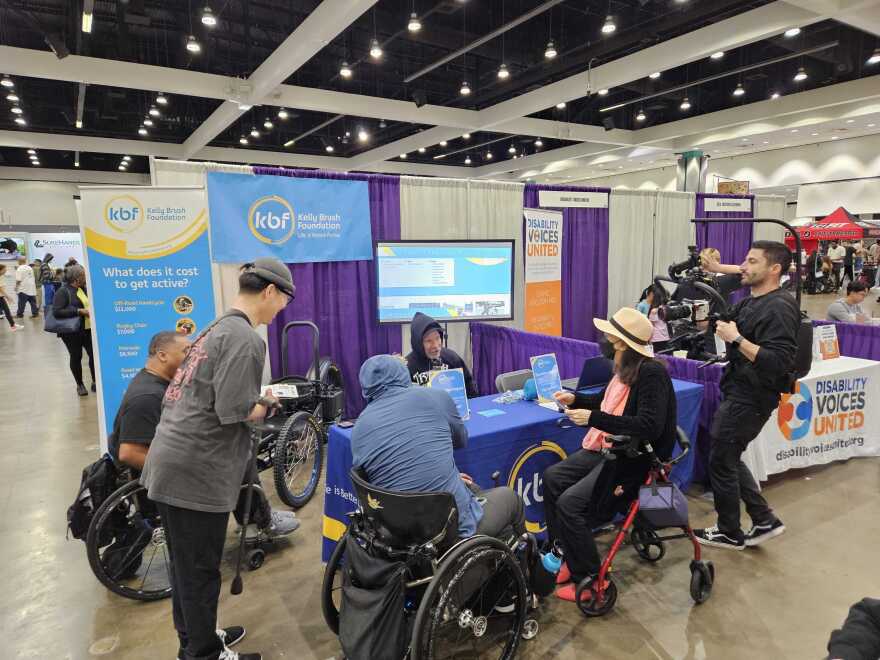Athletes with disabilities across the country are using a new, Vermont-based digital platform to find adaptive sports events, fellow athletes, tutorial videos and equipment grants.
The Active Project was created by the Kelly Brush Foundation, a nonprofit in Burlington.
Bruce Downes, the nonprofit’s senior director of marketing and digital programs, has been building the website for three years.
The latest additions to the site — an events calendar and grant finder — were “pipe dream ideas” for Downes. Both take information from organizations across the country and put it all in one, easy-to-access place.
“It's really the first time an events calendar of this scale has existed for adaptive recreation,” he said.

Burlington resident Shannon Franks, 47, can confirm that. In the past, he said he’s gone looking for adaptive sporting events in magazines — only to find out they’d happened already.
“Online just lends better to that,” Franks said.
He’s now among the 14,000 or so users of the Active Project, and he said he especially likes the instructional videos.
“They have videos on how to get into your racing wheelchair, which I know how to do, but I was thinking, ‘Man, this is really helpful, because that is something that when you get a racing wheelchair, you just have no idea how to use them,’” Franks said.
Ben Hannibal is another user of the Active Project. The 39-year-old lives in the Washington, D.C. area, and said the platform has allowed him to discover sports he never knew existed for people with disabilities: nordic skiing, rafting, rock climbing.
This summer, he said he’s looking at where he could go scuba diving, maybe in Florida.
“It's a great resource for finding the stuff out there that we don't know we can do,” Hannibal said. ”It's a good sense of community. It allows folks to connect.”

Connection — both to community, and to activity — is important for the health of people who experience a spinal cord injury, according to Natalie Bilynsky, a recreation therapist at the Shirley Ryan AbilityLab in Chicago.
“Participation in active recreation can … decrease the risks of a lot of secondary conditions that are associated with spinal cord injury, like osteoporosis or cardiovascular disease, pressure ulcers, UTI, diabetes, arthritis,” Bilynsky said.
She added that the social aspect of adaptive sports also provides mentorship opportunities for people with spinal cord injuries to learn how to navigate travel, relationships and intimacy, going back into the workforce, and parenthood.
And so Bilynsky shares the Active Project platform as a resource for her patients with spinal cord injuries.
“Just the idea of navigating life after spinal cord injury can be really overwhelming,” she said. “So a lot of my patients are just very appreciative to have one place that they can access all of this different information.”

Downes, with the Kelly Brush Foundation, said they’re working with hospitals to get more providers sharing Active Project, and to help patients sign up.
Eventually, he said the hope is these signups can act as a referral to local adaptive sports programs.
“From a HIPAA perspective and from a continuance of care perspective, the beauty there is, that person is now opted in to participate in a platform outside of health care,” he said. “Our dream is down the road, a community representative reaches out and says, ‘Hey, heard you're interested in biking. Let's chat.’”





